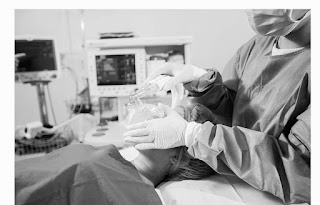Anaphylaxis algorithm
Anaphylaxis: A Life-Threatening Hypersensitivity Reaction
keywords: anaphylaxis, allergic reaction, hypersensitivity, life-threatening allergy, anaphylaxis symptoms, airway problems, low blood pressure, skin changes, allergen exposure, idiopathic anaphylaxis
Anaphylaxis is a severe, potentially fatal allergic reaction that affects the entire body. It requires urgent medical attention due to its rapid onset and life-threatening nature.
Incidence Rate
- 30–950 cases per 100,000 people annually.
- Many cases have no identifiable cause, with a significant portion being idiopathic (non-IgE mediated).
Diagnostic Criteria
Anaphylaxis is likely when all three of the following are present:
- Sudden onset with rapid symptom progression.
- Life-threatening issues with Airway (e.g., swelling), Breathing (e.g., wheezing), or Circulation (e.g., low blood pressure).
- Skin or mucosal changes (e.g., flushing, hives, angioedema).
Supporting Evidence
- Recent exposure to a known allergen for the patient strengthens the diagnosis.
Key Notes
- Skin or mucosal changes alone do not confirm anaphylaxis.
- Up to 20% of cases may lack obvious skin signs, presenting only with circulation issues (e.g., low blood pressure).
- Gastrointestinal symptoms like vomiting, abdominal pain, or incontinence may also occur.
Common Triggers
Based on Pumphrey RS, "Fatal Anaphylaxis in the UK, 1992-2001":
- Domestic triggers:
Stings
|
47
|
29 wasp, 4 bee, 14 unknown
|
Nuts
|
32
|
10 peanut, 6 walnut, 2 almond, 2 brazil, 1 hazel,
11 mixed or unknown
|
Food
|
13
|
5 milk, 2 fish, 2 chickpea, 2 crustacean, 1 banana,
1 snail
|
Food possible cause
|
17
|
5 during meal, 3 milk, 3 nut, 1 each - fish, yeast, sherbet, nectarine, grape, strawberry
|
Other
|
3
|
1 latex, 1 hair dye, 1 hydatid
|
- Medical triggers:
Antibiotics
|
27
|
11 penicillin, 12 cephalosporin, 2 amphotericin,
1 ciprofloxacin, 1 vancomycin
|
Anaesthetic drugs
|
39
|
19 suxamethonium, 7 vecuronium, 6 atracurium,7 at induction
|
Other drugs
|
24
|
6 NSAID, 3 ACEI, 5 gelatins, 2 protamine, 2 vitamin K, 1 each - etoposide, acetazolamide,pethidine, local anaesthetic, diamorphine, streptokinase
|
Contrast media
|
11
|
9 iodinated, 1 technetium, 1 fluorescein
|
Anaphylaxis algorithm:
(click to enlarge or download)
According to Resuscitation Council (UK)




